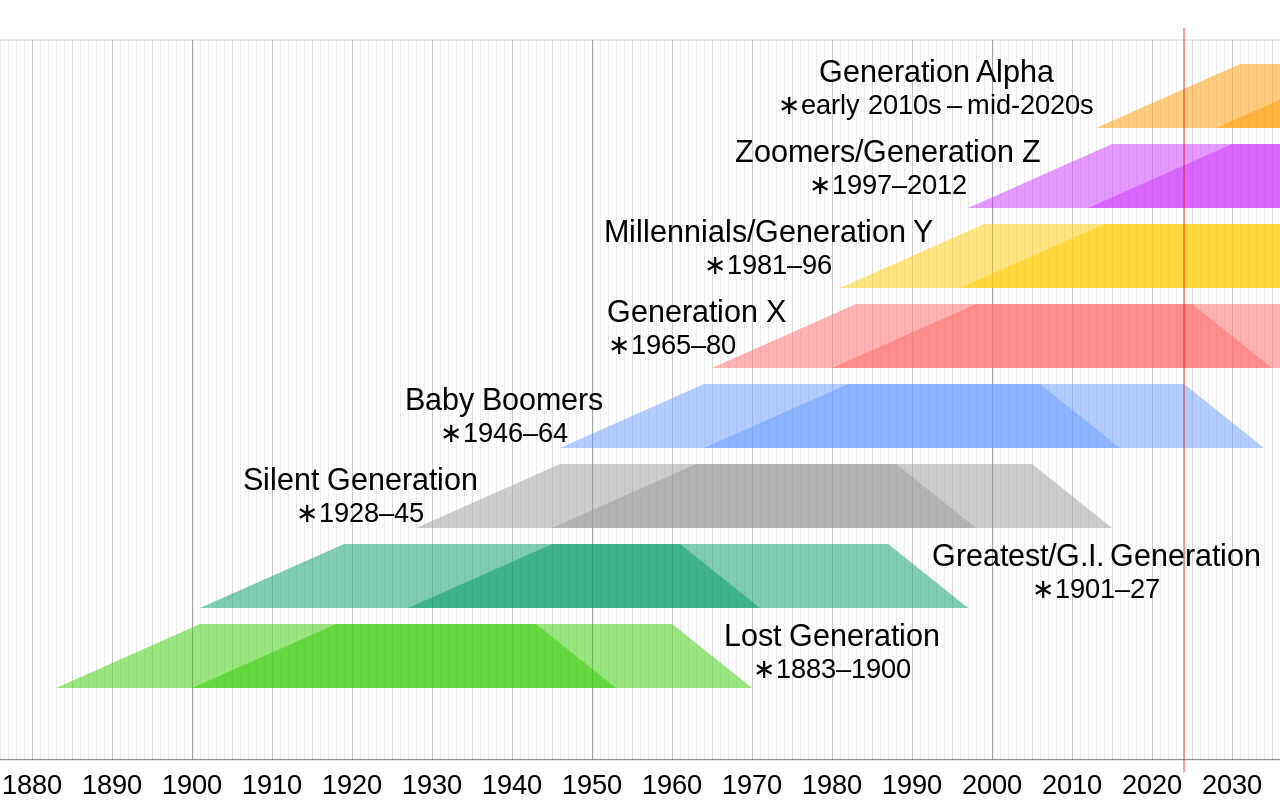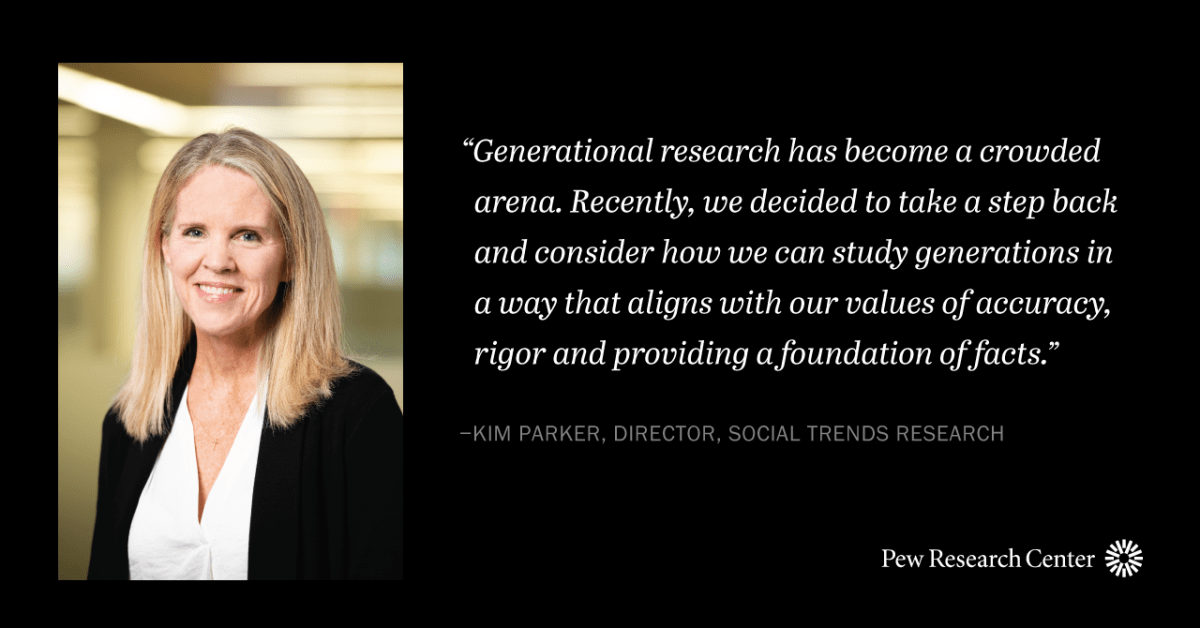Massimo2002
Active Member
Because it would seem that before them the concept of generations just simply didn't exist.
Welcome to Religious Forums, a friendly forum to discuss all religions in a friendly surrounding.
Your voice is missing! You will need to register to get access to the following site features:We hope to see you as a part of our community soon!
Because it would seem that before them the concept of generations just simply didn't exist.

So generations existed before the silent generation but they didn't have names ?I think the concept existed since ancient times, although it may only be in recent history that they started delineating generations by specific years. Some might informally refer to the decades people are born in, rather than give them some kind of unique name like "Lost Generation" or "Baby Boomer." I remember hearing concepts comparing the children of the 1840s with those of the 1860s, perhaps to explain the various political and social movements of the time and how they impacted on the generations of the 20th century.
But as far as having generations grouped like this, perhaps it's a way of attempting to explain various historical developments and events which shaped our present times.

But personally, I don't think these kinds of groupings really explain that much. I guess they caught on, and people seem to identify with them, but I never really did. For example, I was born in December, 1963. This means I'm part of the "Baby Boomers," although the eldest Boomers were already adults before I even entered kindergarten. I probably would identify more with the Generation X-ers, especially those born in the late 1960s. I consider myself more a child of the 1960s and identify with others born in that decade, as opposed to those born in the 1940s or 50s.
Also fun fact since you mentioned your birthday my dad's birthday is December 29 and he was born in 1963.I think the concept existed since ancient times, although it may only be in recent history that they started delineating generations by specific years. Some might informally refer to the decades people are born in, rather than give them some kind of unique name like "Lost Generation" or "Baby Boomer." I remember hearing concepts comparing the children of the 1840s with those of the 1860s, perhaps to explain the various political and social movements of the time and how they impacted on the generations of the 20th century.
But as far as having generations grouped like this, perhaps it's a way of attempting to explain various historical developments and events which shaped our present times.

But personally, I don't think these kinds of groupings really explain that much. I guess they caught on, and people seem to identify with them, but I never really did. For example, I was born in December, 1963. This means I'm part of the "Baby Boomers," although the eldest Boomers were already adults before I even entered kindergarten. I probably would identify more with the Generation X-ers, especially those born in the late 1960s. I consider myself more a child of the 1960s and identify with others born in that decade, as opposed to those born in the 1940s or 50s.
So generations existed before the silent generation but they didn't have names ?
Also fun fact since you mentioned your birthday my dad's birthday is December 29 and he was born in 1963.
Great song from 1975 I know it and I'm pretty sure my dad knows it but I will tell him anyway.There's a song by the Four Seasons called "December, 1963," which I thought was kind of cool. Your dad may have heard it.

 www.pewresearch.org
www.pewresearch.org
Generations are referred to in the Bible about a gazillion times.Because it would seem that before them the concept of generations just simply didn't exist.
That's good to know.FYI, there seems to be a trend away from the "generation" approach in the social sciences because it is, at times, problematic as a methodological research tool.
See:

How Pew Research Center will report on generations moving forward
When we study groups of similarly aged people over time, we won’t always default to using the standard generational definitions and labels.www.pewresearch.org
